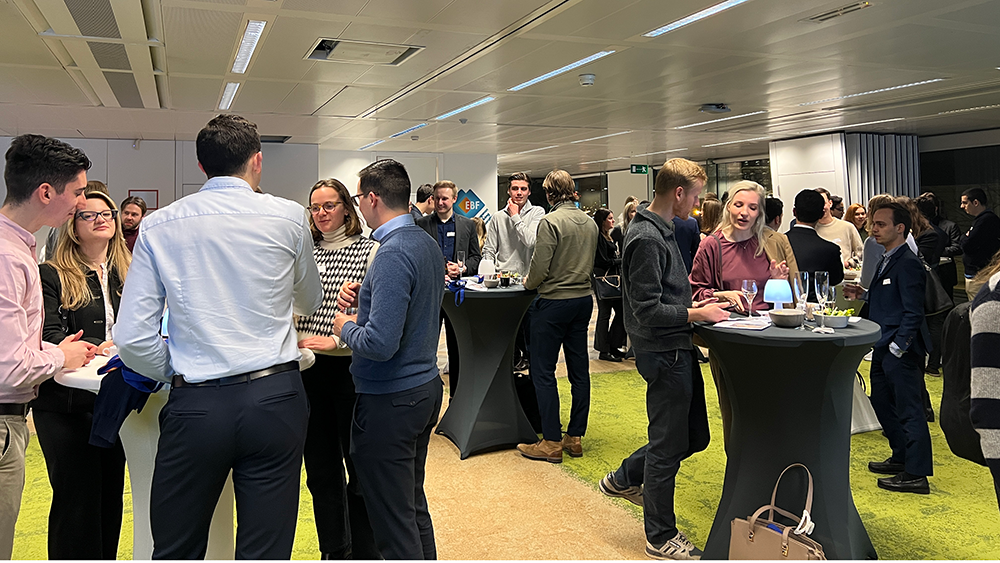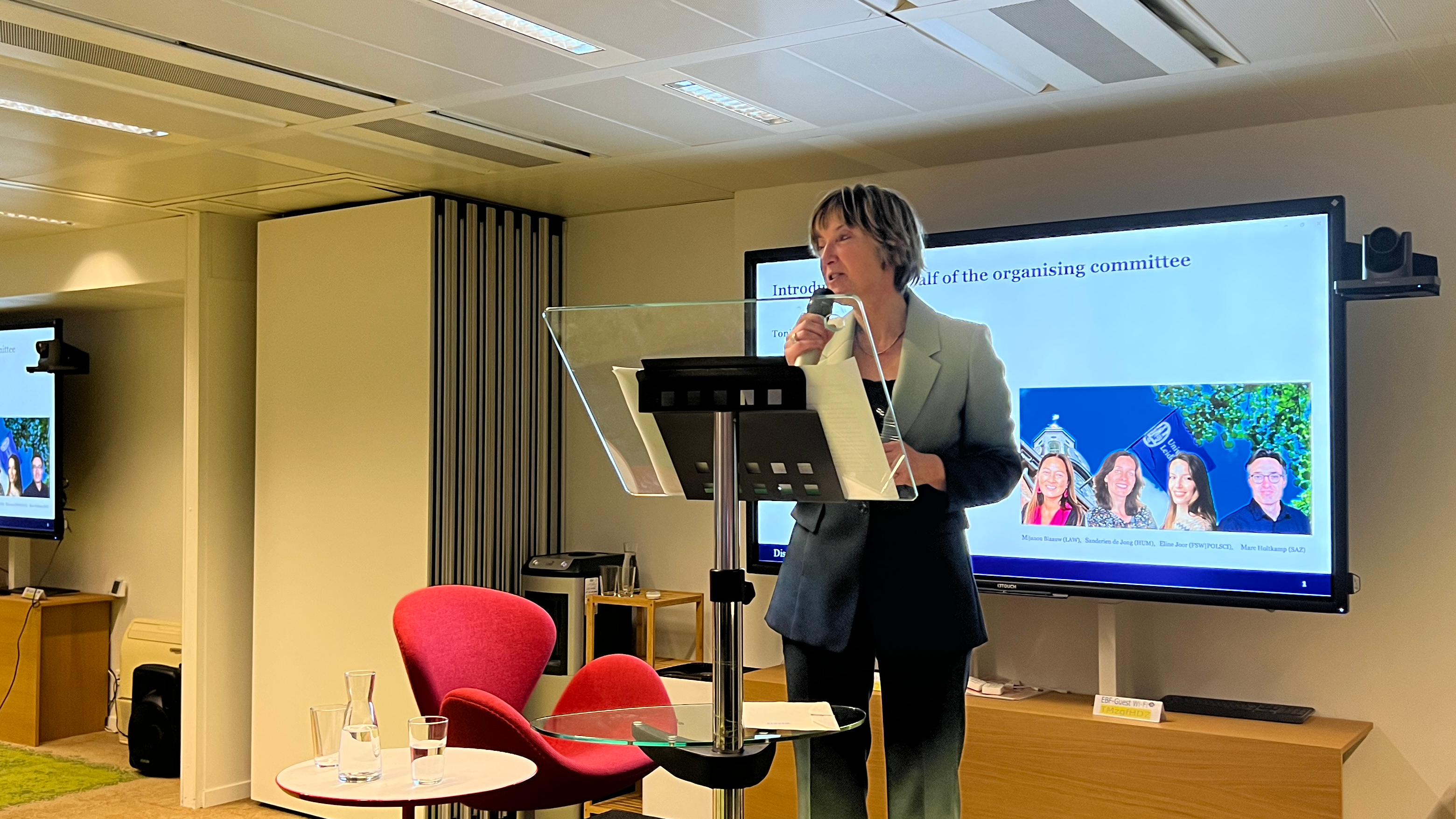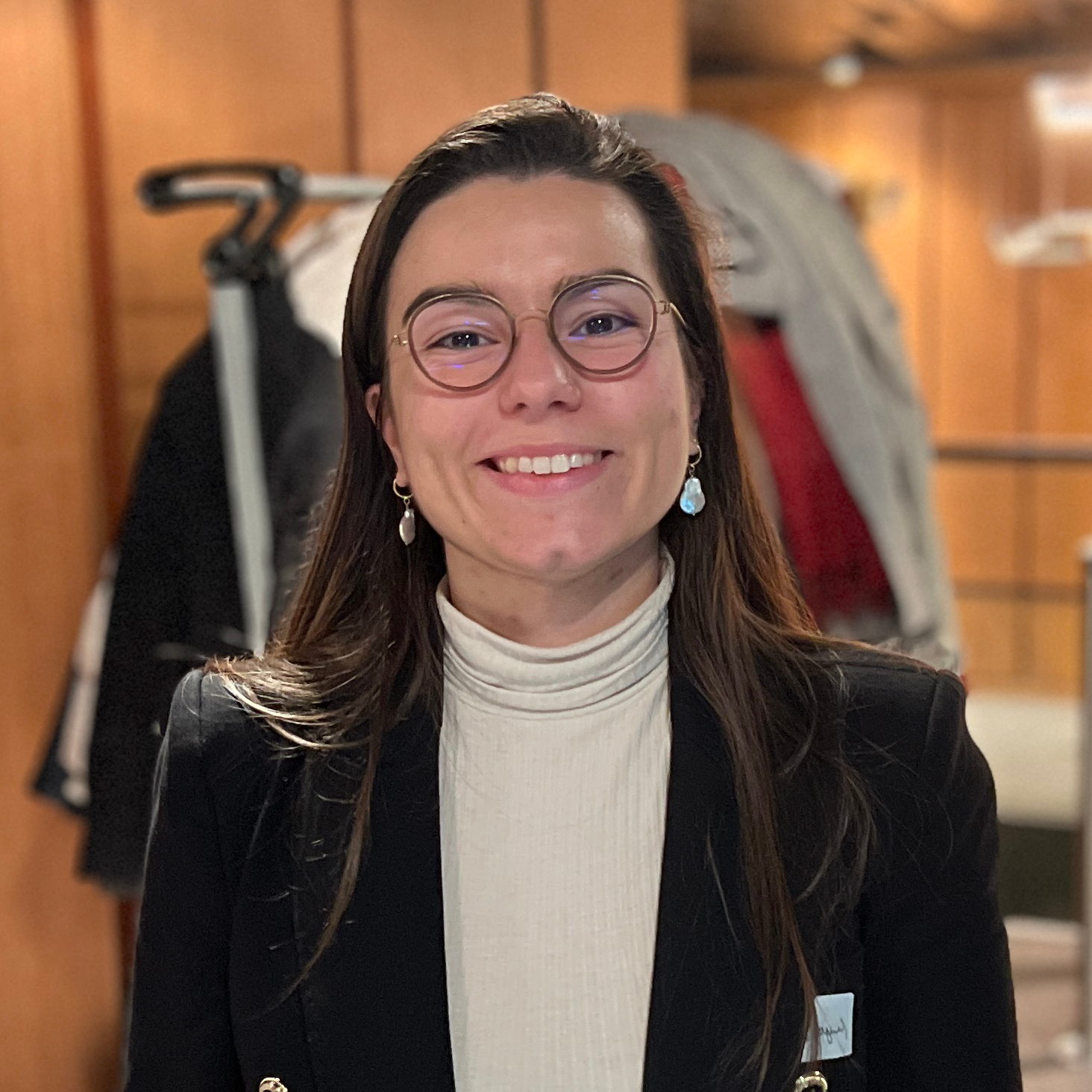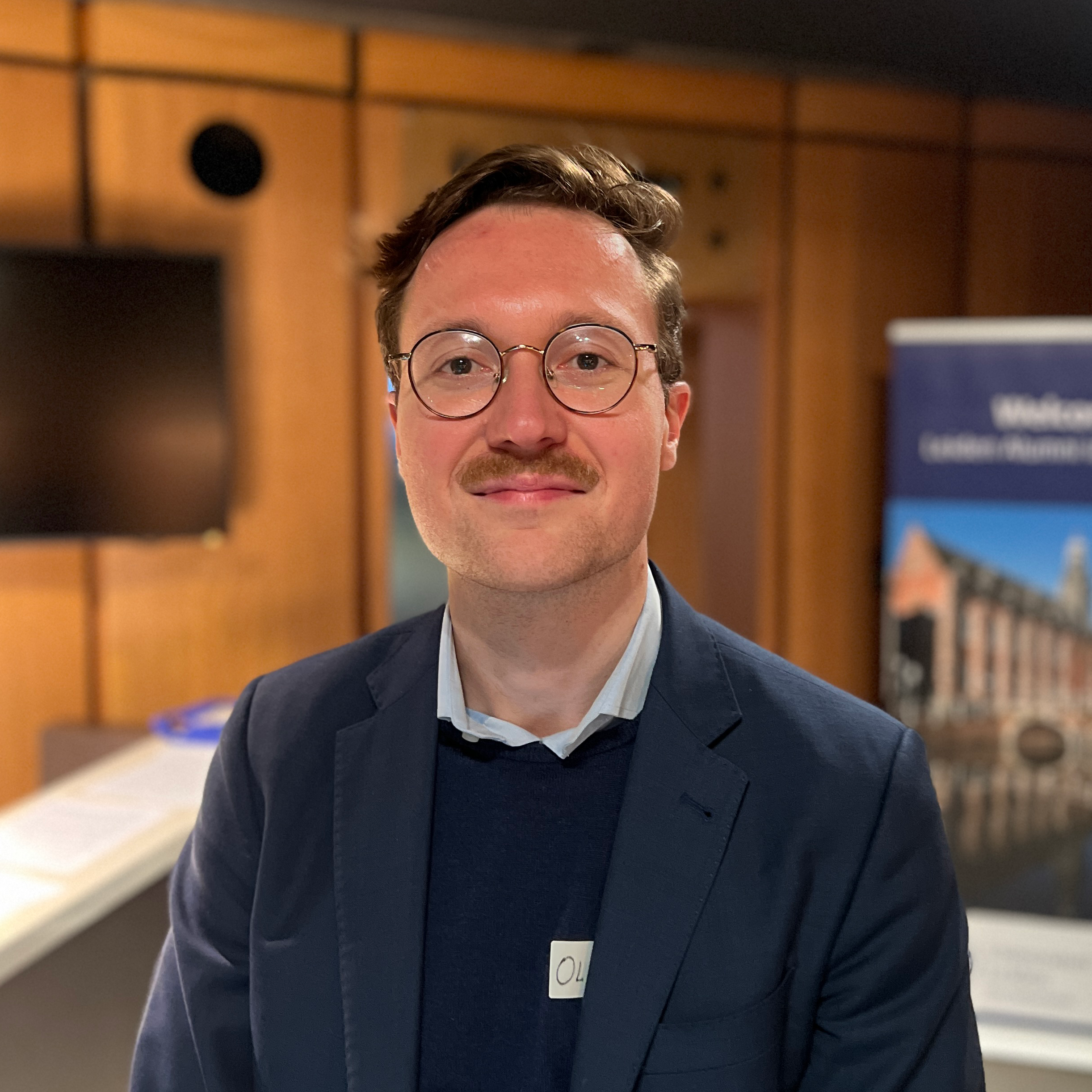
Alumni meet in Brussels: ‘We’re at a crossroads in European history’
Alumni who live and work in Brussels met on 18 February at the annual Leiden Alumni in Brussels Event. As well as celebrating Leiden University’s 450th anniversary, they also looked at the challenges Europe faces.
Executive Board President, Annetje Ottow, welcomed the over 120 alumni who had come to the sold-out event in the European Banking Federation building (EBF). ‘You are fantastic ambassadors for Leiden University and we are proud of the work so many of you do for the European cause.’
The university’s 450th anniversary did not go unnoticed, with Professor Egbert Koops giving his Dies Natalis lecture again and testing the alumni’s knowledge with a quiz on the university’s history.
-

Catching up with old friends and making new ones -

Annetje Ottow addresses the Brussels alumni -

Quizmaster Egbert Koops fires off questions about Leiden University -

The obligatory group photo at the end
Teaching and education for Europe
In her speech Ottow stressed that the European Union must continue to invest in research, especially now funding in the Netherlands is under attack. Leiden University produces knowledge and education that Brussels institutions can make use of. For example, Leiden’s Europe hub, which was opened that very day at the European Parliament. ‘We are at a crossroads in European history. Leiden University will fight to make sure we take the right road and I’d like to thank you for helping.’
Sense of urgency
One of the other speeches was by Gerben-Jan Gerbandy, an MEP for the D66 party and a Leiden Public Administration alumnus. He also spoke about that crossroads Europe faces. ‘We need to unite as Europe. Europe may well be the strongest bloc in the world, but we do need make sure we’re pulling together. I think everyone in this room will feel that sense of urgency – the time for action is now.’

Gerbrandy has fond memories of his time in Leiden. ‘I still go there regularly – also to see old university friends. I still feel that connection and can see it in people here tonight. I hadn’t expected so many youngsters, so was really pleased with that.’
Alongside the speeches, the main aim of the evening was to give alumni the chance to meet up and find out what everyone had been getting up to. The host of the evening was Wim Mijs, CEO of the EBF. He stressed the importance of lifelong connections between alumni and the university.

Iris Raith studied International Relations and Organisations in The Hague
‘This is my second time here. I don’t feel much of a connection to Leiden because I studied in The Hague. I’ve come with friends from work because we found out we’re all Leiden alumni. The university has a name for its interdisciplinary teaching, which is why I studied there. Alongside international law, I took political science and sociology courses and did a minor in intelligence. It taught me to look at problems from different angles. I now work for NATO, which is really exciting and hectic, now in particular.’
Zindzelé Taitt studied Crisis and Security Management in The Hague
‘I only graduated in 2024, so I’m one of the youngest alumni here. It’s great to get to know people and hear about their experiences and how their degrees have helped them in their professional careers. Mine hasn’t yet begun. I’m mainly looking for an internship, preferably in humanitarian aid. It’s good to hear how others converted their degree into a job. That gives me faith for my future.’

Olivier Fajgenblat did Film and Literary Studies in Leiden
‘I’m on a Ministry of the Interior and Kingdom Relations secondment and am working for the European Commission. I mainly deal with rules and regulations for tech companies and platforms, but also with media legislation and copyright rules. My degree programme gave me a lot of freedom to choose. For my thesis, I researched online extremism and internet memes and that’s how I ended up specialising in online culture and the associated platforms. I was an assessor in Leiden for two years and defended the interests of 7,000 students. This involved weekly meetings with three professors to discuss things like the faculty budget. They took me seriously, and I will cherish that experience for the rest of my life.’
